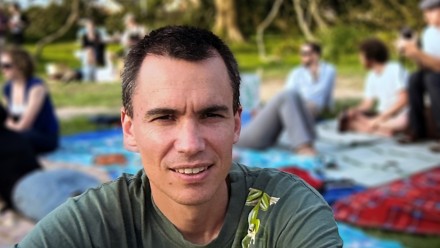Thai Health-Risk Transition Project
The Thai Health-Risk Transition Project is investigating how the health and wellbeing of Thai people is changing with infection and malnutrition receding, life expectancy increasing and chronic disease emerging. This profound transition reflects globalising lifestyles and modern outcomes and the whole population and the health system need to adapt in ways not yet defined. Rapid economic development in Thailand in recent decades has changed its structure from primarily rural communities in subsistence agricultural settings to industrialized populations in urban centres. Urbanisation and increasing affluence has promoted stressful lifestyles characterized by energy-dense diets, decreased physical activity and dependence on mechanised transport. Given the complex drivers of the Thai health-risk transition this project is necessarily multi-disciplinary with collaborators from the fields of epidemiology, economics, demography, occupational health, anthropology, and sociology.
This large scale project is centred around a national Thai Cohort Study (TCS) of 87,151 distance learning adult Thai Open University students. This study began in 2004, inspired partly by the 30 year Nurses Health Study in Harvard, USA, and by the Framingham study that preceded it. The 87,151 Thai cohort members, first surveyed in 2005, were followed-up in 2009 (n= 60,569) and in 2013 (n=44,000). Mail based questionnaires in each wave have collected information on a large array of socio-economic and demographic factors as well as health behaviours (diet, physical activity, smoking, alcohol, transport) and physical and mental health outcomes (Kessler 6, SF8, body size, traffic and non-traffic injury, fractures, lifetime diagnosis of 23 diseases). As well the project links to the Thai Vital Registration system allowing analyses of mortality risk factors.
An important feature of the project has been regional capacity building for public health research in Thailand and Australia. To date 9 PhD (6 Thai and 3 Australian) and 8 Thai Masters students have graduated through the project, and 4 PhDs are underway (1 Australian, 2 Thai and 1 Japanese).
Partnerships
The project is a collaboration between the Australian National University and Sukhothai Thammathirat Open University (STOU) in Thailand. The Principal Investigator at STOU is Associate Professor Sam-ang Seubsman who is also a Visiting Fellow at RSPH.
Other research partners
- QIMR Bergohofer Medical Research Institute
- Monash Injury Research Institute
- Chiang Mai University
- Ministry of Public Health (Thailand)
- Mahidol University (Thailand)
- Osaka University











